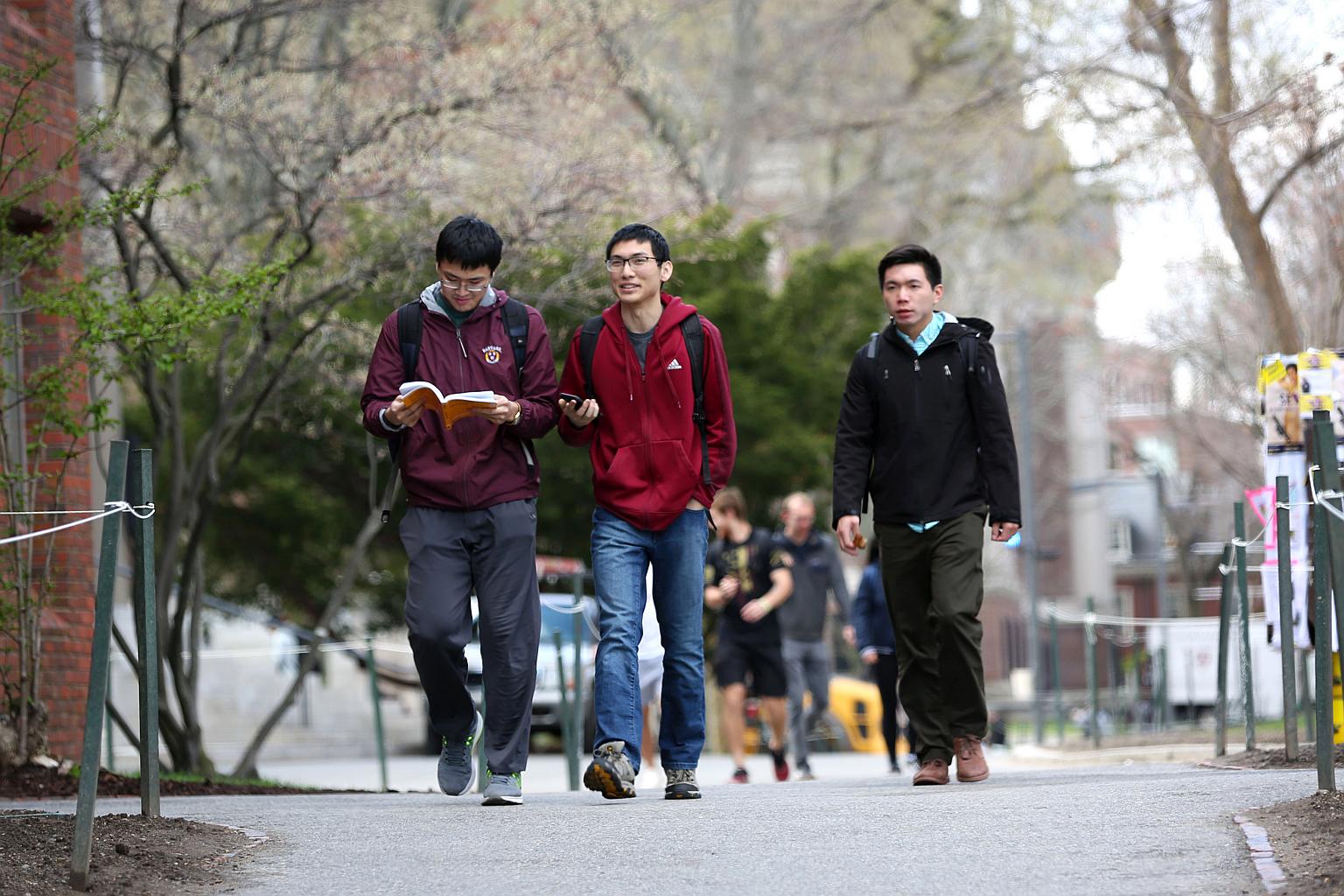Drop in Chinese students sparks worries in US universities
Sign up now: Get insights on Asia's fast-moving developments

The total number of Chinese undergraduates in the US dropped by 110 in 2017 compared with the previous year.
PHOTO: NYTIMES
BEIJING (CHINA DAILY/ASIA NEWS NETWORK) - The drop in the number of Chinese going to the United States to study, especially at the undergraduate level, is causing concern in US universities about revenue and academic research.
For a decade, there had been consistent and rapid growth in Chinese undergraduate students going to the US, said Mr Rahul Choudaha, a research associate at the Centre for Studies in Higher Education at the University of California, Berkeley.
But in 2017, for the first time in recent years, the number shifted downwards, Mr Choudaha said.
Some institutions, such as the universities of Oregon and Illinois, have seen a significant decline in Chinese student enrolment this year, especially for non-STEM (science, technology, engineering and mathematics) programmes, he said.
Based on his analysis of the National Science Foundation's data, the number of Chinese undergraduate students in non-science and non-engineering programmes decreased by 1,920 in 2017 compared with 2016. The total number of Chinese undergraduates in the US dropped by 110 in 2017 compared with the previous year.
The decline is meaningful from the perspective of trends, said Mr Choudaha, who is also executive vice-president for global engagement and research at StudyPortals, a company that recruits international students online.
"In 2006, the number of Chinese undergraduates in the US was 10,000, and in 2016, the number increased to 142,000. Then, the reverse started happening," he said.
Multiple factors played into the change, and one is the ongoing anti-immigrant rhetoric and unwelcoming climate, Mr Choudaha said.
"The election of (US President Donald) Trump has changed the narrative of how welcoming the US is as a nation, especially at the undergraduate level, where families make decisions based on the students' choice and their safety," he said.
Restrictions include limiting the length of visas for Chinese students and scholars studying and conducting research in certain sensitive fields.
The Trump administration also considered but rejected a proposal to bar all Chinese students, according to a recent Financial Times report.
"Every visa that's a hassle, every time somebody gets the idea that Chinese people are not welcome in the US, in my opinion, that's not only morally wrong but also economically stupid," UC Berkeley law professor Robert Merges said at a panel discussion on US-China relations on Tuesday (Oct 9) in Berkeley.
"Anybody who wants to be here and can make a contribution should be welcome. There was a time in the US when that was our fundamental belief. I'm a little worried about that belief these days," he said.
Prof Merges said it's "foolish policy", in economic terms, to turn away people who want to learn and contribute.
Ms Shiyang Gong, a Silicon Valley-based immigration lawyer, said tightened restrictions and the political climate have made some of her clients give up on applying for an H-1B visa, which allows US companies to employ foreign workers in speciality occupations.
"All Chinese students want to work in the US for some experience, even if they plan to return to China after graduation," said Ms Gong. "There's a lot of anxiety. The loss of work opportunity might influence prospective students' choices of universities."
China is the largest source of international students in the US.
From 2016 to 2017, there were 350,755 Chinese students at US universities, which was about 35 per cent of all foreign students, according to the Open Doors study late last year by the Institute of International Education.


